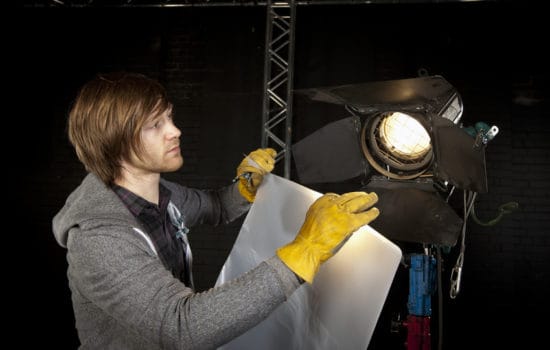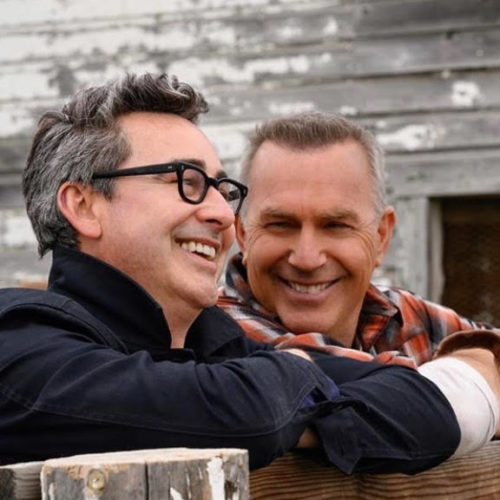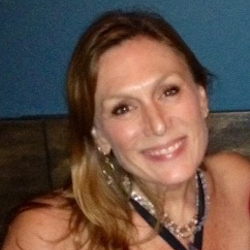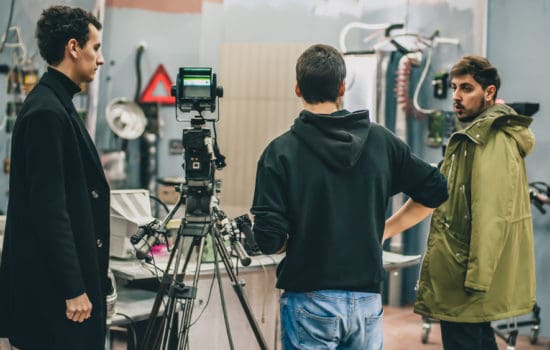How do you write in script format?
The great thing about writing screenplays today is that you can choose from a wide variety of screenwriting software programs that largely take the guesswork out of formatting for you.
But understanding how all of those script format elements work together is still key when writing your screenplay! So let’s go through some of the basics for writing in screenplay format:
- Select your preferred screenwriting software.
- Create a title page for your screenplay.
- As you begin writing your screenplay, create a scene heading for each new scene.
- Keep your action lines concise. As the term implies, limit it mostly to action happening in a scene. Refrain from explaining the emotional state of characters or providing exposition that should be conveyed through dialogue.
- Create unique character names for each figure in the screenplay to differentiate them from each other.
- Be tough on your dialogue. Cut anything that does not inform the character or move forward the plot.
- The dialogue should almost always provide enough insight into how the Actor should speak it. Use sparingly parentheticals to elaborate on dialogue delivery.
- Refrain from including camera direction in your screenplay. Leave that to the camera crew!
- Likewise, the inclusion of too many transitions in a script can be distracting. For instance, it is not necessary to include “CUT TO” from one scene to the next. In most cases, “FADE IN” to begin your script and “FADE OUT” to conclude it will suffice.
- Stick with traditional formatting elements such as 12-point Courier font size. Veering away from these conventions can again be distracting for someone else reading your script. Never take away the focus from the story you are trying to tell.
What is a sample script?
A sample script, commonly referred to as a spec script, is a screenplay that’s written without any contract in place for the Screenwriter to get paid for it.
A spec is simply a story that the Screenwriter wants to tell. It’s possible that their script may one day get optioned or outright bought, but at the time that they write it, there is no assignment or agreement that they will get compensated for it.
So why are spec scripts sometimes called sample scripts? Because that’s often the purpose they serve. Even if a spec script is never optioned or sold, it can be used as a sample of the Screenwriter’s work to help them get representation or even a gig for a different project.
A Screenwriter must have samples of their work for Managers, Agents, Producers, Executives, and even other Screenwriters to read. Without a sample script – and in many cases, it’s recommended to have several on hand – no one will be willing to take a chance on representing, working with, or hiring a Screenwriter.
How do I start writing a script?
This is how to write a script:
- Learn and prepare
- Choose a theme
- Pick a genre
- Select a setting
- Create a compelling protagonist
- Include conflict
- Develop supporting characters
- Craft a logline
- Write a treatment
- Outline your script
- Set goals for yourself
- Revise your script
- Get feedback
Is script writing easy?
In a word, no. Script writing isn’t easy, but for many people, the difficulty of creating a story out of literal thin air is exactly why they do it! To be able to put to paper – or a computer screen – a film or television idea from your imagination is a challenge to be sure. And while time and experience can make each script writing session feel a little less daunting, even veteran Screenwriters admit that it never gets much easier.
How much do script writers get paid?
The salary of a script writer can wildly vary according to multiple factors, including experience, medium, type of writing for that medium, and union status. Screenwriters often write what are called spec scripts, which are screenplays they write without an assignment to do so. Meaning no pay at all. Rather, the goal with these types of scripts is to generate interest in the Screenwriter themselves with the possibility of also optioning or selling the script at some point. If a Writer is hired for a writing assignment, the payment can still fluctuate widely depending on what it is they are creating, for whom, and under what timeframe.
Is writing a script harder than a book?
It’s a completely subjective answer when it comes to whether writing a script is harder than writing a book. Though they both tell stories, they tell those stories in markedly different ways. All to say, if you have a story you want to share with the world, consider that no matter how you realize it, it will be a significant undertaking regardless of specific medium.


























